Then the watchman saw another man running; and the watchman called to the gatekeeper and said, “Behold, another man running by himself.”
And the king said, “This one also is bringing good news.”
2 Samuel 18:16
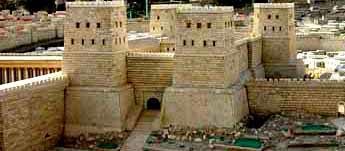
Of Gatekeepers and Watchmen
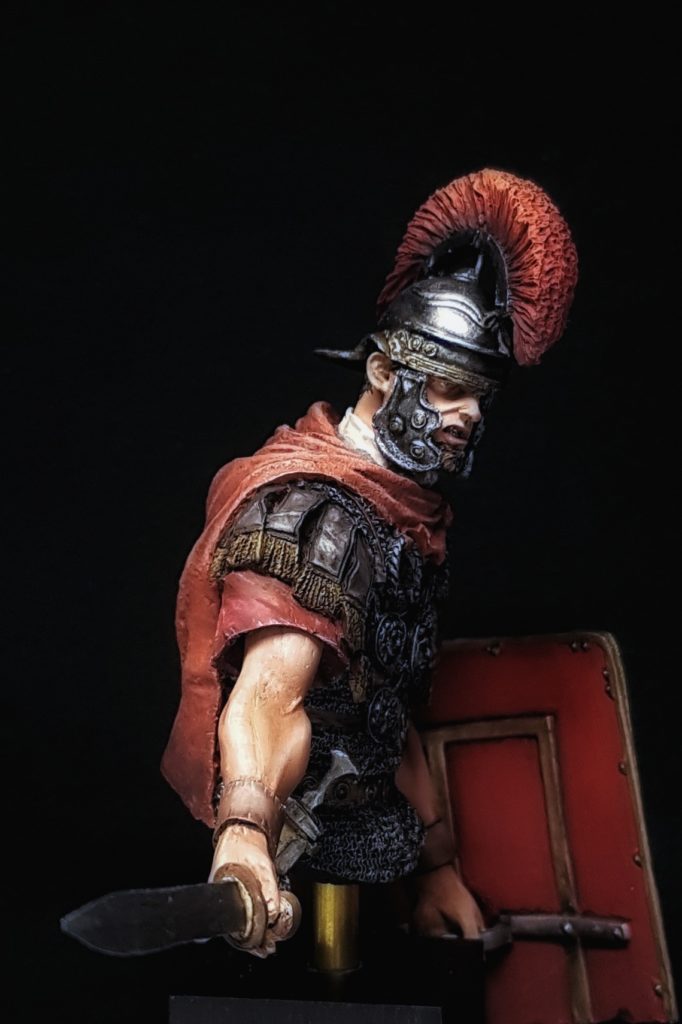
It would have been a Roman Centurion, Roman guards at the gates of first century Jerusalem.
Armed soldiers, some who had marched on Roman roads connecting nearby towns and slaughtering rebellious zealots in the mountain passes guarded the gates.
As each festival approached with its crowds of pilgrims flooding the streets of Jerusalem, each watchtower with its Roman overseers would look to turn back any threat to their subject-king and their Caesar.
A Roman guard in each watchtower of Jerusalem would have sent out an alarm if any opponent approached their captive city.
They were unlike the faithful who worshiped here and the not so casual crowds of curious visitors of this day.
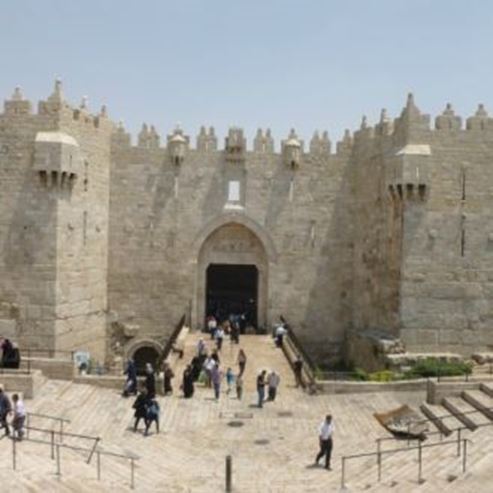
- Who approaches our city?
- Will they enter through the gate by permission of their king (or city leader)?
- Are they any threat to the Emperor’s representative, our leaders and our Legions?
Who may enter?
It was common practice of the people, including shepherds leading sheep for the slaughter of the sacrifice, to travel here from far away hills and trade within Jerusalem’s walls. Then they worshiped within the courts of their Temple, surrounded by walls of watchmen.
The gatekeeper is much more than a ticket taker, so to speak, a man of authority.
Please keep in mind the context of John’s gospel in the earthly journey of Jesus and the Apostles to Jerusalem. Although we pause once more in John’s witness of a man born blind, the context of Jesus’ actions set the stage for what will happen next.
Rome will destroy Jerusalem later, as Babylon and others had destroyed her before. This nervous alliance between a subject king of the region and ruler of Rome governed the day-to-day lives of Judea’s subjects.
Some mattered more than others. A ruling council guarded their revamped religion and culture: Pharisees, Sadducees, rich landowners paying taxes for the Roman army to remain there in peace.
They kept pretense of self-rule under Herod as a self-subjugated nation which could be crushed by Rome at any hint of rebellion.
A Roman legacy of a Judean King
Back in 19 B.C., Rome had allowed their great builder king to start rebuilding the Temple. Ten thousand skilled laborers and a thousand Levites built it with contributions of Jews mostly from the diaspora to the east just beyond Rome’s grip. It would not be completed until A.D. 63, just seven years prior to their destruction of all Jerusalem. – Source
Those now in authority choose who may enter Jerusalem. Several acted as gatekeeper for a gate entering the court of the Temple, a designated religious police poised at its gates. And as always, those judged for crimes were sentenced by a court sitting at the gate.
But now their jewish judgments must be confirmed by Rome’s prefect who cruelly crushed opposition by the constant reminders of their Roman crosses of crucifixion along roads to the city.
Like always, men of no threat to anyone often sat within the gates begging from faithful pilgrims coming and going into the city.
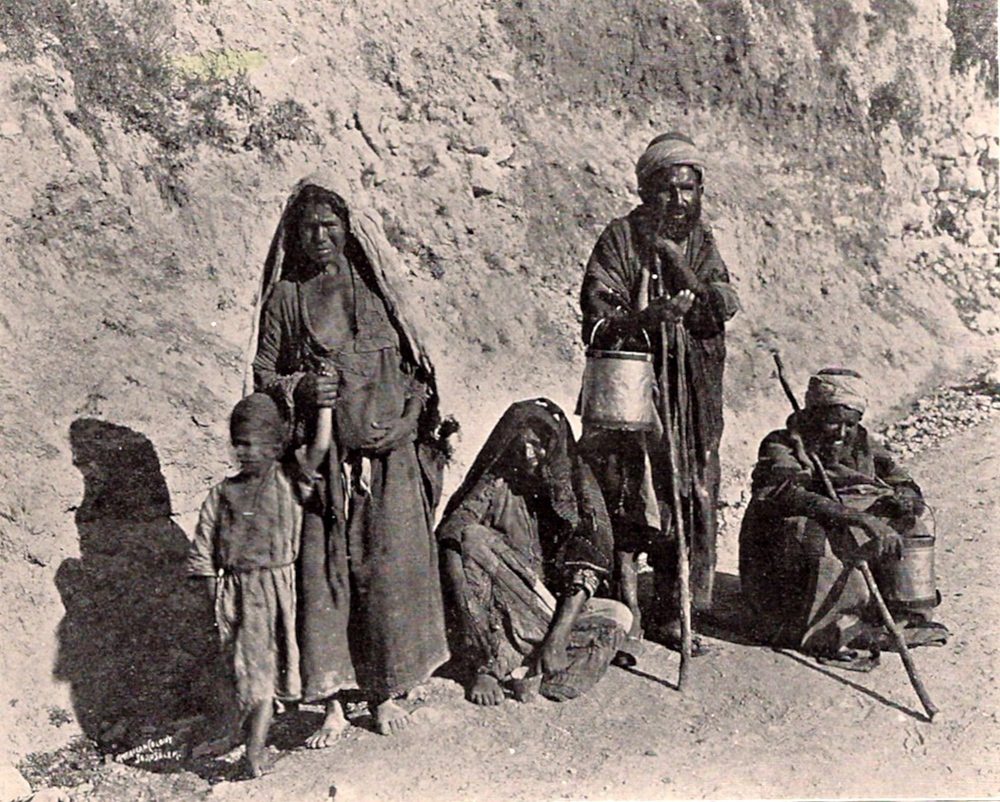
David’s Watchmen
When David was king, Jerusalem had fought for the LORD rather than bowing down to a Caesar. Yet even David sat as gatekeeper of Israel after opposition by his own son.
David’s great kingdom long forgotten, Jerusalem’s leaders mustered the crowds toward a new faith of confidence by the name of David, although few remembered David’s defeats and difficulties.
One such ne’er-told scripture would have been of David’s time after Absalom’s revolt. It was a day not so grandiose as their many reminders to first century crowds of Solomon’s first Temple.
2 Samuel 18:
Then David numbered the people who were with him and set over them commanders of thousands and commanders of hundreds…
So the king stood beside the gate, and all the people went out by hundreds and thousands…
6 Then the people went out into the field against Israel, and the battle took place in the forest of Ephraim. (Note Ephraim’s earlier loss of the blessing of Jacob.)
7 The people of Israel were defeated there before the servants of David [Judah], and the slaughter there that day was great, 20,000 men…
17 They took Absalom and cast him into a deep pit in the forest and erected over him a very great heap of stones. And all Israel fled, each to his tent.
24 Now David was sitting between the two gates; and the watchman went up to the roof of the gate by the wall, and raised his eyes and looked, and behold, a man running by himself. The watchman called and told the king.
And the king said, “If he is by himself there is good news in his mouth.”
And he came nearer and nearer. Then the watchman saw another man running; and the watchman called to the gatekeeper and said, “Behold, another man running by himself.”
And the king said, “This one also is bringing good news.”
…
Why send two?
Two messengers. King David awaits good news as he sits in the gate as gatekeeper of the City of David.
Men from the watchtowers above see a distant scene long before David has news of what has happened. Two separate messengers approaching the stronghold of Jerusalem where the people had kept their king behind as gatekeeper.
Why two? What details of the battle for the LORD will they reveal?
“O my son Absalom
The report of hope turns into great sorrow for the king.
“Let my lord the king receive good news, for the Lord has freed you this day from the hand of all those who rose up against you.”
“Let the enemies of my lord the king, and all who rise up against you for evil, be as that young man!”
33 The king was deeply moved and went up to the chamber over the gate and wept.
Though his victory as King is secured, David would have done anything to have kept his own son from death.
And thus he said as he walked, “O my son Absalom, my son, my son Absalom! Would I had died instead of you, O Absalom, my son, my son!”
2 Samuel 19:
8 So the king arose and sat in the gate. When they told all the people, saying, “Behold, the king is sitting in the gate,” then all the people came before the king…
After several violent battles between the rebellious tribes of Israel David prevails as king.
Solomon then becomes Israel’s richest and greatest king, building the Temple of the Lord. But in his old age Solomon falls away from his faith and at his death Israel and Judah once again divide.
After some centuries both kingdoms fall, the Temple of Solomon destroyed.
A Babylonian-built Jewish temple
Perhaps you have never considered that the temple in Jerusalem could never have been rebuilt over the ruble where the Law was found without Persia’s and Babylon’s help. Of course, the LORD made it possible as the LORD had influenced Pharaoh before.
“Thus says Cyrus king of Persia, ‘The LORD, the God of heaven, has given me all the kingdoms of the earth and He has appointed me to build Him a house in Jerusalem, which is in Judah.
Ezra 1:2 NASB
Therefore, ‘in order to fulfill the word of the LORD by the mouth of Jeremiah, the LORD stirred up the spirit of Cyrus king of Persia.’ [Ezra 1:1]
For every house is built by someone, but the builder of all things is God.
Hebrews 3:3 NASB
Therefore, just as the Holy Spirit says,
“TODAY IF YOU HEAR HIS VOICE,DO NOT HARDEN YOUR HEARTS AS WHEN THEY PROVOKED ME,
Hebrews 3:7-8 NASB
AS IN THE DAY OF TRIAL IN THE WILDERNESS…
Nehemiah & Ezra
Prophets like Isaiah, Jeremiah and Ezekiel warned both Israel and Judah to return to the LORD, but they also provided hope for later faithful generations of God’s faithfulness.
Although building of the second temple was begun around 516 BC (many centuries after David), it was not completed until about 349 BC under the leadership of Ezra and Nehemiah.
Then I said to them, “You see the bad situation we are in, that Jerusalem is desolate and its gates burned by fire. Come, let us rebuild the wall of Jerusalem so that we will no longer be a reproach.”
Nehemiah 2:17 NASB
Again, note the passage of time and the patience of the LORD in completing His plan of redemption.
Nehemiah 4:
He [Sanballat] spoke in the presence of his brothers and the wealthy men of Samaria and said,
“What are these feeble Jews doing?
Are they going to restore it for themselves? Can they offer sacrifices? Can they finish in a day? Can they revive the stones from the dusty rubble even the burned ones?”
The importance of gatekeepers guarding the gates of the faith, as well as the city continued as it had since the time of David and traditions of Moses.
1 Chronicles 9
A century before the beginning of the rebuilding of the temple
… And Judah was carried away into exile to Babylon for their unfaithfulness.
17 Now the gatekeepers were Shallum and Akkub and Talmon and Ahiman and their relatives (Shallum the chief being stationed until now at the king’s gate to the east)…
20 Phinehas the son of Eleazar was ruler over them previously, and the Lord was with him. Zechariah the son of Meshelemiah was gatekeeper of the entrance of the tent of meeting. All these who were chosen to be gatekeepers at the thresholds were 212.
The Pharisees and priests (Levites) of the rebuilt temple of the first century had legitimacy of guarding the purity of the faith of the LORD.
Now the leaders of the people lived in Jerusalem, but the rest of the people cast lots to bring one out of ten to live in Jerusalem, the holy city, while nine-tenths remained in the other cities.
Nehemiah 11:1 NASB
Isaiah 60:
ק֥וּמִי א֖וֹרִי כִּ֣י בָ֣א אוֹרֵ֑ךְ וּכְב֥וֹד יְהוָ֖ה עָלַ֥יִךְ זָרָֽח׃
2 כִּֽי־הִנֵּ֤ה הַחֹ֙שֶׁךְ֙ יְכַסֶּה־אֶ֔רֶץ וַעֲרָפֶ֖ל לְאֻמִּ֑ים וְעָלַ֙יִךְ֙ יִזְרַ֣ח יְהוָ֔ה וּכְבוֹד֖וֹ עָלַ֥יִךְ יֵרָאֶֽה׃
We will next return to first century Jerusalem, but first hear the words of the Prophet Isaiah. (Without knowing their context you may have heard them before.)
Arise, shine;
For your light has come!
And the glory of the Lord is risen upon you.
…
The Gentiles shall come to your light,
And kings to the brightness of your rising.
“Lift up your eyes all around, and see:
They all gather together, they come to you;
Your sons shall come from afar,
And your daughters shall be nursed at your side.
Then you shall see and become radiant,
And your heart shall swell with joy…
Yet previously Isaiah the Prophet had warned:
His watchmen are blind,
All of them know nothing.
All of them are mute dogs unable to bark,
Dreamers lying down, who love to slumber;
And the dogs are greedy, they are not satisfied.
And they are shepherds who have no understanding;
They have all turned to their own way,
Each one to his unjust gain, to the last one.
Into this same Jerusalem the Messiah Jesus enters the gates, encounters the watchmen and shepherds of Herod. Among other signs the Lord gives a man blind from birth his sight!
Could the LORD have sent a new gatekeeper of heaven to Jerusalem?
To be continued...

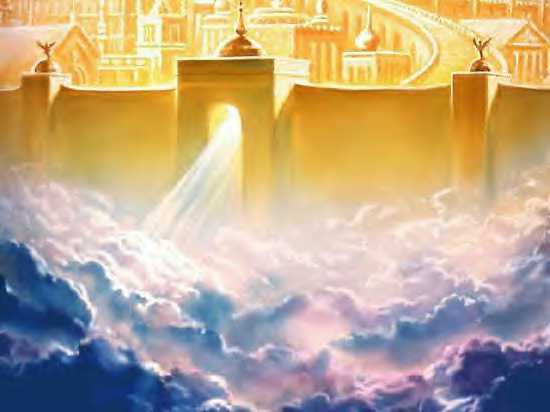
Leave a Reply